Three Trinity County elementary schools have been able to take advantage of funding from the State of California to update their classrooms for Transitional Kindergarten (TK) facilities.
While TK was available at many public schools in California, it became a required offering through legislation passed in 2021, making TK available to all 4-year-olds and income-eligible 3-years-olds in the state within five years. The legislature and governor followed that up with allocating funding to assist school districts in remodeling their school campuses to build facilities that adequately meet the needs of this new grade level.
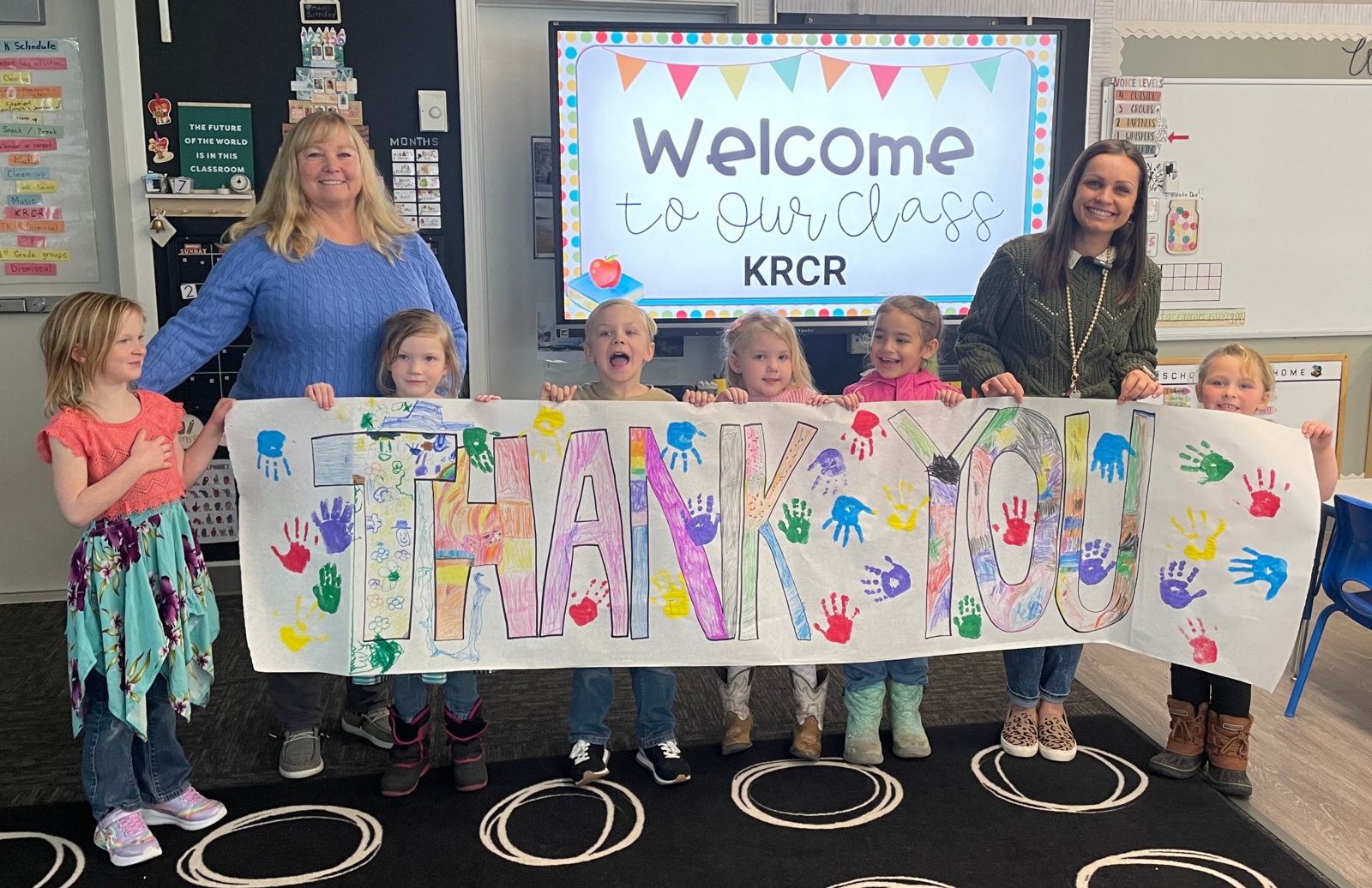
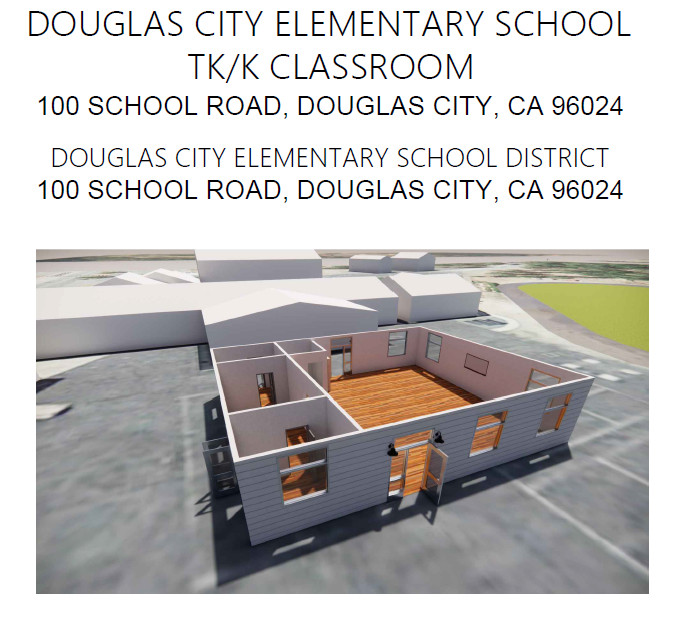
Lewiston Elementary was first out of the gate, applying the first year that funding was available to update their Kindergarten room which hadn’t had a significant makeover since the school was constructed in the late 1950’s. With remodeled a “right sized” bathroom, new flooring and paint and a wide open floor plan, the TK and K kids at Lewiston now have a fresh educational environment that focuses on play based learning. Lewiston’s project is now complete and was recently featured in a piece on KRCR TV.
Junction City Elementary and Douglas City Elementary submitted successful funding applications during the second funding round. Both campuses will also receive additional funding from Trinity County Behavioral Health to fund adjoining counseling / special services rooms. The new TK building will be placed on a portion of the rear playground area on both campuses.
All three districts are excited about being able to provide key facilities and support for the youngest students on their respective campuses.
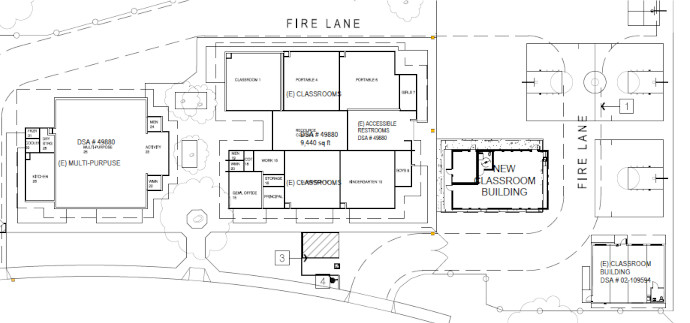
PUBLIC NOTICE OF COUNTY BOARD VACANCY
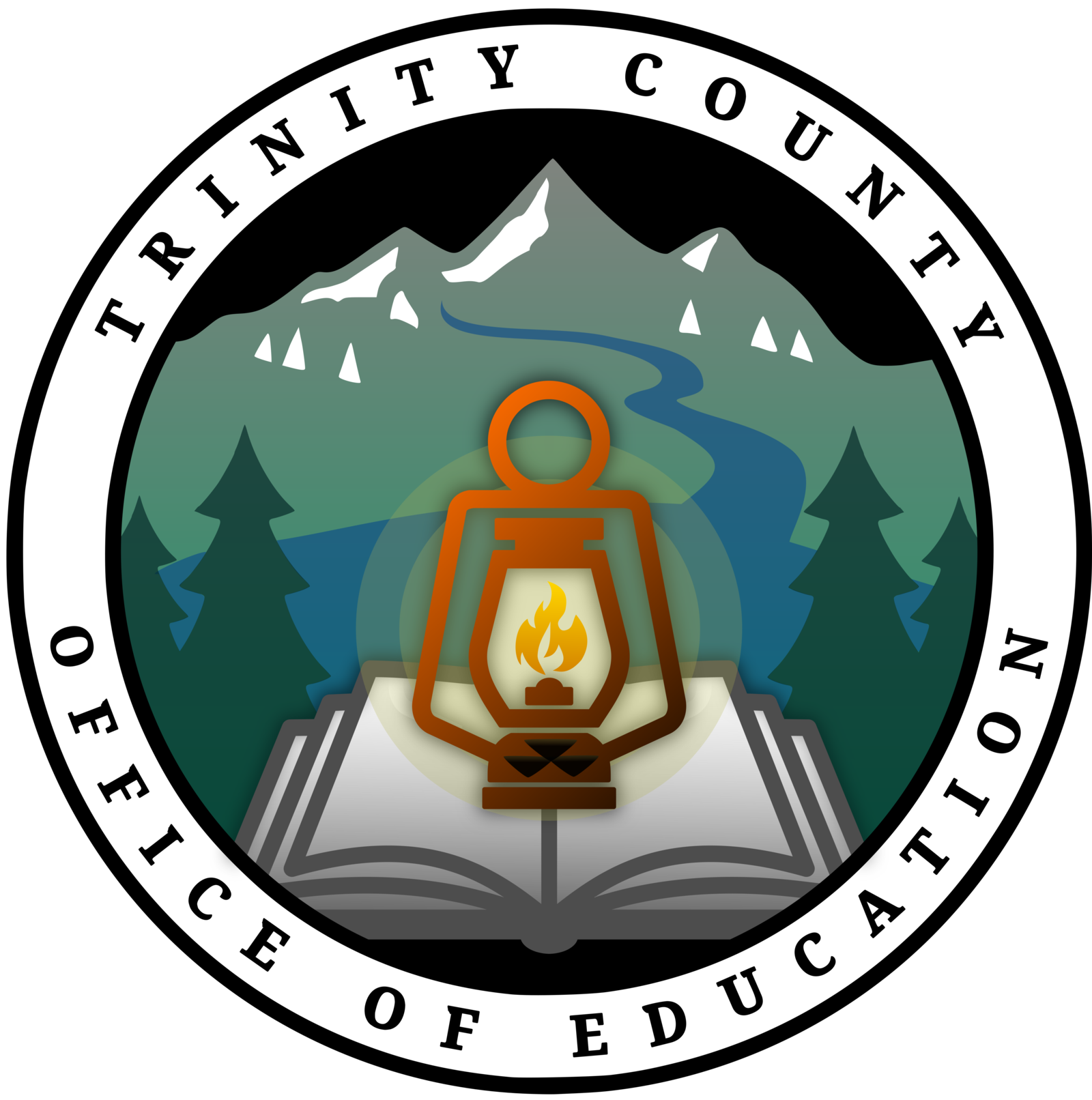 The Trinity County Board of Education announces one vacancy on the Board of Trustees.
The Trinity County Board of Education announces one vacancy on the Board of Trustees.
The vacancy occurred due to a resignation.
Applicants must be:
- 18 years of age
- A registered voter
- Reside in Area II
The term of office will begin at the time of appointment and will expire December of 2026.
Persons interested in being considered for an appointment to the Board should write a letter outlining their interests and qualifications.
Letters should be received by Noon on Friday, February 7, 2025.
Please direct letters of interest to:
Fabio Robles, Ed.D., Superintendent of Schools
Trinity County Board of Education
PO Box 1256 Weaverville, CA 96093
 As part of the effort to increase the disaster readiness and resilience of the schools within our county, the Trinity County Office of Education (TCOE) is leading the development of a Hazard Mitigation Plan.
As part of the effort to increase the disaster readiness and resilience of the schools within our county, the Trinity County Office of Education (TCOE) is leading the development of a Hazard Mitigation Plan.
A Hazard Mitigation Plan is a 5-year plan which focuses on hazard risk identification and mitigation planning. For local schools, wildfire, flooding and the need for public emergency shelters all factor into the planning process with an additional focus of plans to reconnect kids with their families before, during or after an emergency.
As part of the project, TCOE is reaching out to better understand local community perceptions and experiences with hazard risk to the county’s schools. TCOE has prepared a 10-15 minute anonymous survey to gather real information to present a clear picture, support the hazard risk analysis, and develop a responsive 5-year hazard mitigation strategy.
Your input matters! The survey will be open from December 9th through January 9th, 2024. You can complete the survey at the link below, at the TCOE office, or at your local school by request.
Survey Link: https://bit.ly/TCOE-
Project Website: https://bit.ly/TCOE-HazMit-
Once there are specific public engagement opportunities available, TCOE will share them on the project webpage and social media.
Stay Informed By Email: https://forms.gle/
Project Contacts:
TCOE - Jeff Morris jmorris@tcoek12.org 530-355-9880
TCRCD - Skylar Fisher sfisher@tcrcd.net 530-623-6004 ext. 214
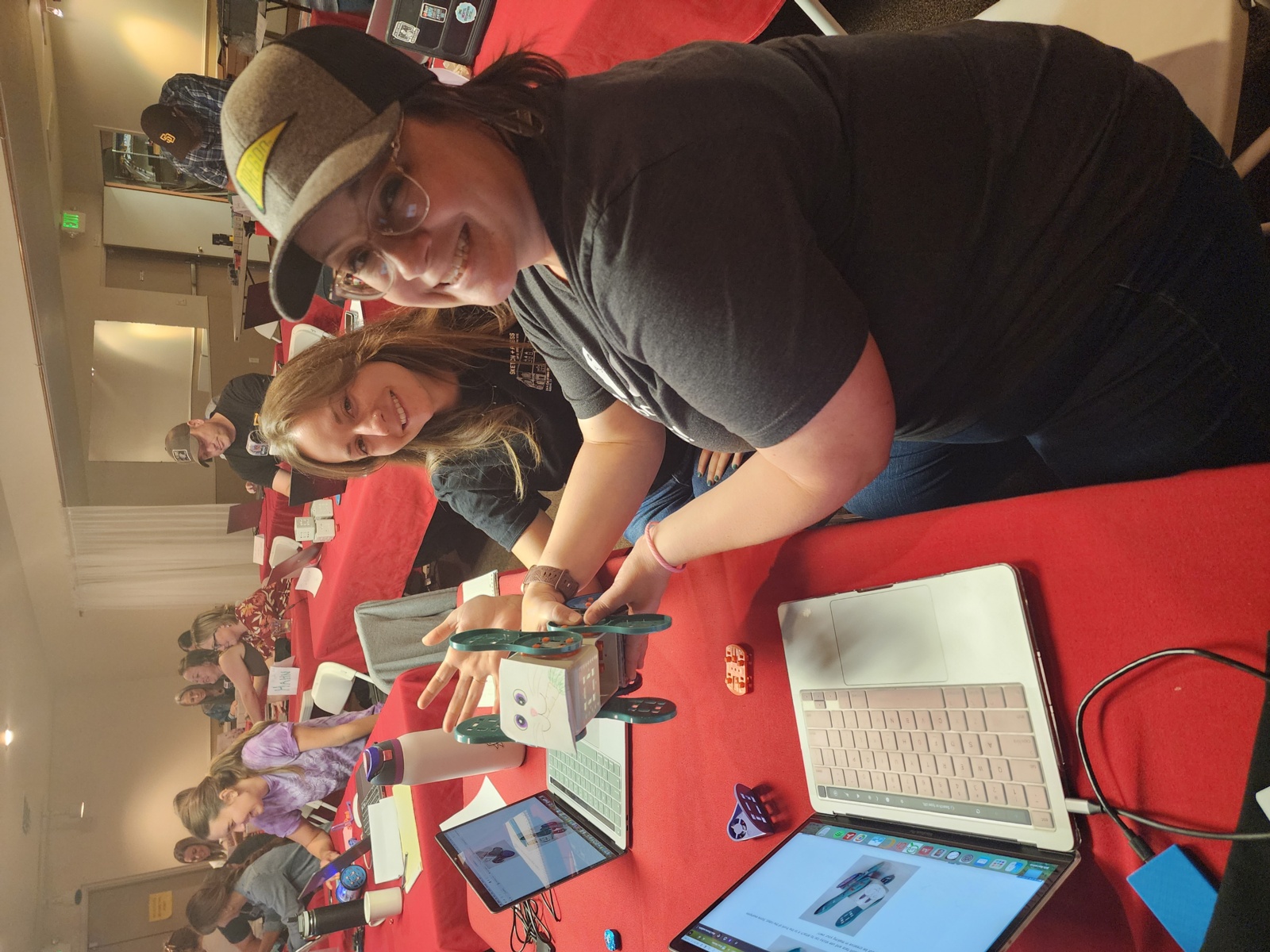 ....finding the integration between Math, Science and Computer Science
....finding the integration between Math, Science and Computer Science
This fall, staff members from 5 different local school districts and the Trinity County Office of Education, dove into a day-long session focusing on C-STEM, the linkage between Math, Science and Computer Science. Based on an initial assessment conducted last school year that included interviews with teachers and administrators, this professional development was funded by a grant from the Cal MSCS program.
C-STEM curriculum utilizes robotics and coding as a way to deliver and reinforce math skills from basic concepts to very advanced. The successful grant application was able to provide instruction to over 20 local staff members this fall in the first course of five to be offered. Developed at University of California Davis, the C-STEM program is the brainchild of Harry H. Cheng, Ph.D, the UC Davis Director of the Center for Integrated Computing and STEM Education (C-STEM).
“We are very excited to partner with the Trinity County Office of Education to bring hands-on math learning through coding and robotics to K-12 students in small and very small school districts across this rural mountain region,” said Chen,”Through this course, teachers gained valuable insights into computer science principles, best practices, and methods for integrating coding and robotics into math instruction.”
Participating teachers and staff members were effusive about the experience.
Carly Miller, TK-1 Teacher:
"Exciting ways to get students more engaged in math and engineering projects with robots, and ways to get them collaborating on a whole-school level."
Bethany Cantrell, TK-K Teacher:
"I loved the robotics portion of the class. I think the kiddos will really enjoy being a part of building robots that can move and do cool things."
Dustin Sheetz, Grade 6-8 Math, Science, and Social Science Teacher:
"I liked the hands-on activities. Can't wait to use the curriculum."
Amy Raschein, Grade 6-11 Tech, English, and Art Teacher:
"Everything was very user-friendly and easy to use. I teach a robotics class, so I'm really excited to bring it to that class. It was so interactive and excited me, so I know it will excite my kids, too. Great job!"
Candice Gilbreath, Grade K-9 Science, English, Multiple Subjects Teacher:
"I learned that the program has lessons that align with my classroom curriculum which will help provide concrete modeling to an otherwise abstract idea. Seeing the bot in action when solving a division problem that not only helped with directionality but also conceptualizing remainders."
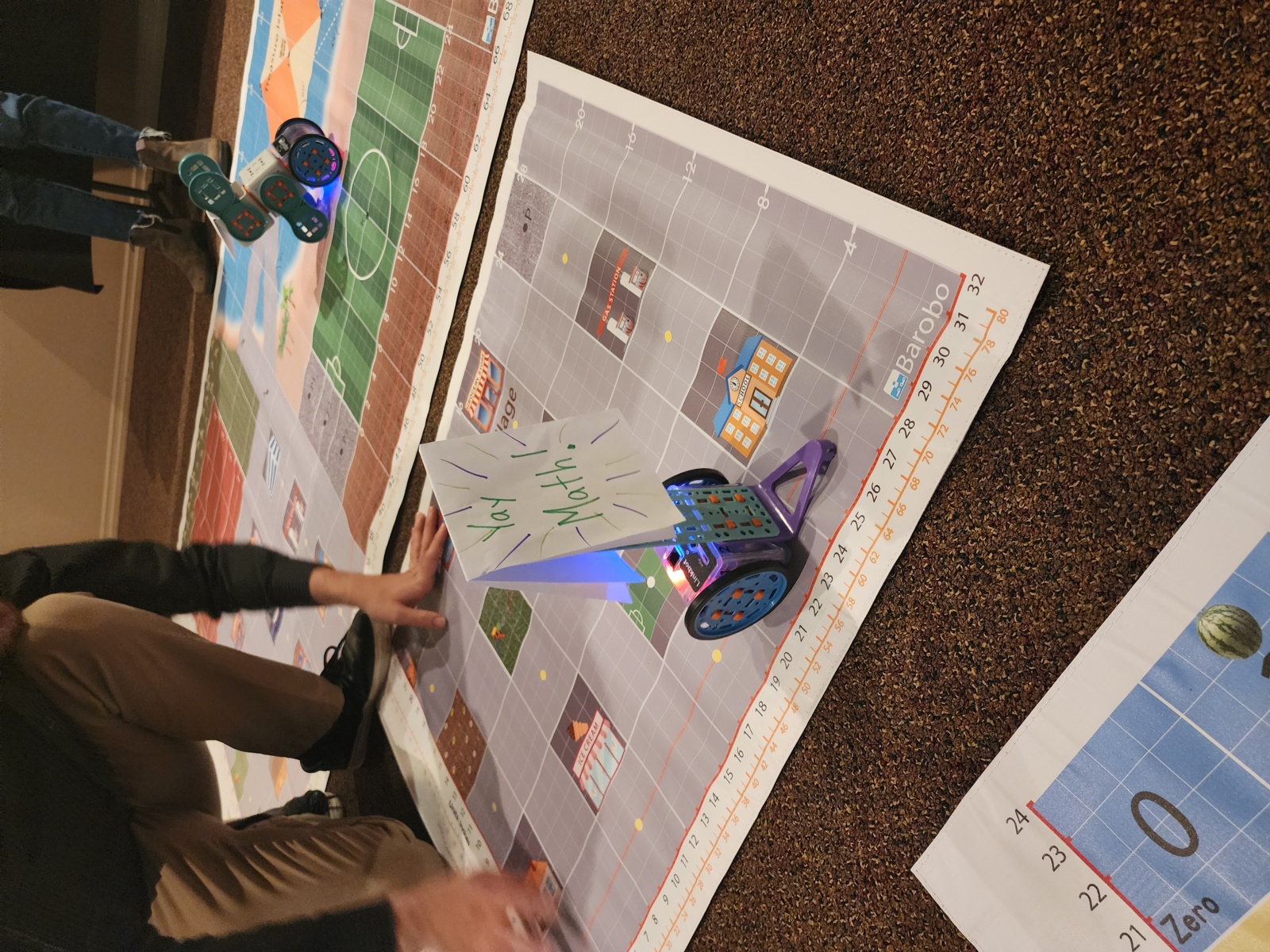 For participants who make their way through the entire series, there is also the opportunity to earn a computer science authorization credential for those who already hold a single-subject credential..
For participants who make their way through the entire series, there is also the opportunity to earn a computer science authorization credential for those who already hold a single-subject credential..
While many individual school districts across the state are utilizing this program, Trinity County is the first county in California to deliver this opportunity on a countywide level.
TCOE Instructional Support Specialists, Joanne Tucker and Megan Rourke, also received significant praise from Dr. Chen, who was impressed by the “leadership in providing this professional development opportunity to such a large group of teachers in rural mountain areas.”
Future courses are planned for the upcoming calendar year, starting in early January.
Earlier this month, students from Hayfork and Southern Trinity High Schools got outside of their comfort zones to experience life skills and training at two very different venues.
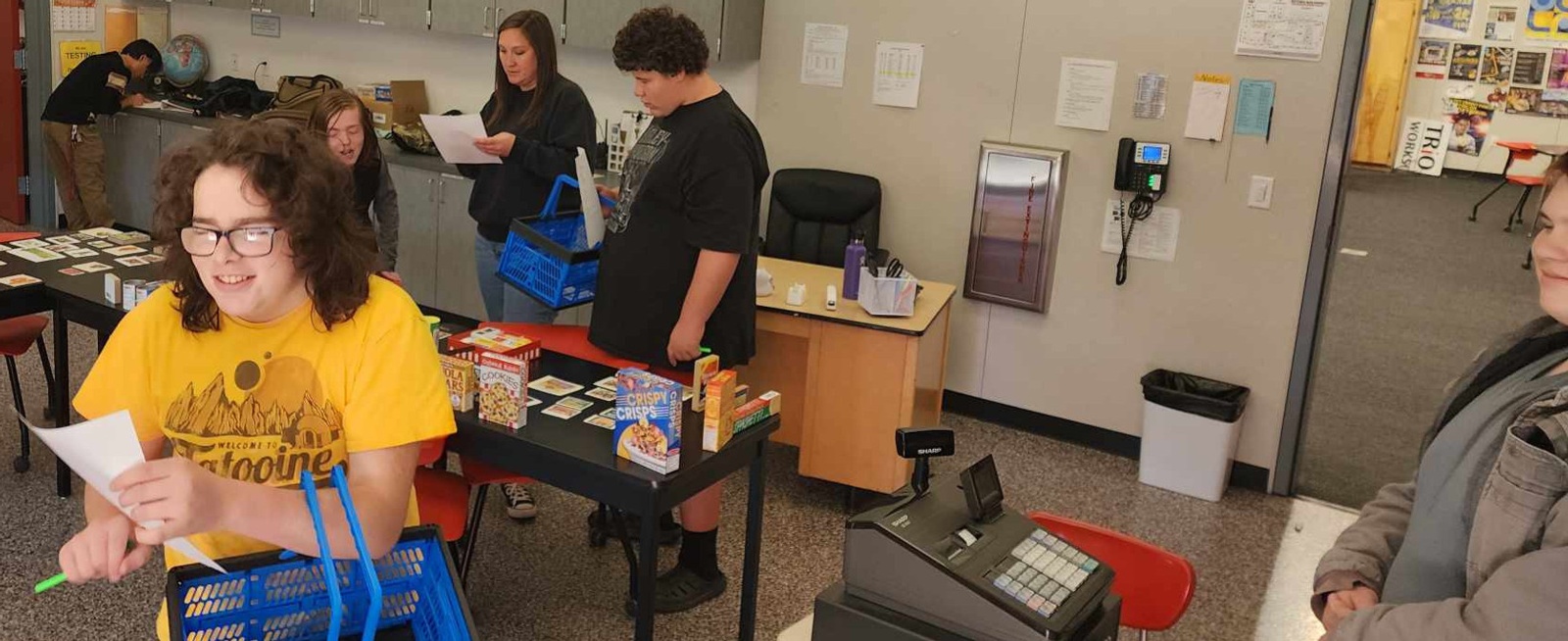 Hayfork High School students held a budget / grocery store day with paraprofessional, Jaime Curry, in pursuit of creating a month-long food budget for their individual households. This involved decision making on meals and what to buy for a single shopping trip to sustain them for a FULL MONTH, with a budget of $ 300 or less.
Hayfork High School students held a budget / grocery store day with paraprofessional, Jaime Curry, in pursuit of creating a month-long food budget for their individual households. This involved decision making on meals and what to buy for a single shopping trip to sustain them for a FULL MONTH, with a budget of $ 300 or less.
Students took turns shopping and running the cash register to ring each other up as if they were going through a check out line. This activity focused on money and math skills while also emphasizing interpersonal “soft” skills like customer service. The “store’s” ambiance was also enhanced with a fireplace in the background.
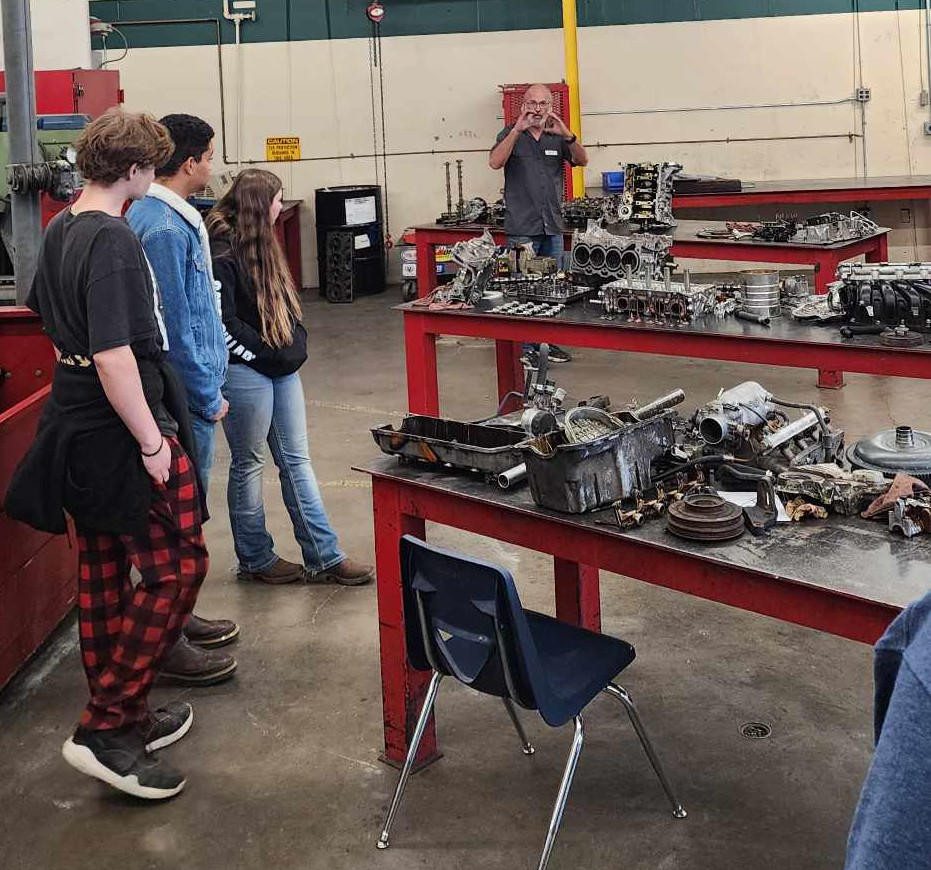 The Southern Trinity High crew went further afield for their life skills adventuring. Shop teacher Cindy Dixon took the crew of students to Shasta College to participate in a CTE academy. Southern Trinity High students spent their day auditing the Shasta College engine-repair courses. Students received hands-on experience in everything from changing spark plugs to learning about diesel engines and touring the machining classroom. They then took turns compression testing an engine before they took a bit of a left turn into the “Hot Shop”, where they were given a private showing of Shasta College’s new glass-blowing class and watched a demonstration of the craft in real time. Overall, students were exposed to a wide variety of hands-on coursework that they could take part in after their high school career comes to a close.
The Southern Trinity High crew went further afield for their life skills adventuring. Shop teacher Cindy Dixon took the crew of students to Shasta College to participate in a CTE academy. Southern Trinity High students spent their day auditing the Shasta College engine-repair courses. Students received hands-on experience in everything from changing spark plugs to learning about diesel engines and touring the machining classroom. They then took turns compression testing an engine before they took a bit of a left turn into the “Hot Shop”, where they were given a private showing of Shasta College’s new glass-blowing class and watched a demonstration of the craft in real time. Overall, students were exposed to a wide variety of hands-on coursework that they could take part in after their high school career comes to a close.
The sessions for both schools were supported by the Trinity County Office of Education’s Workability Coordinator, Stephanie Rebelo.

